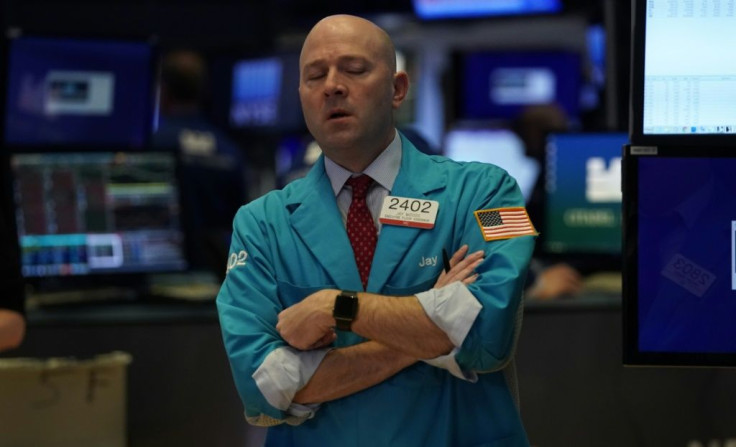US Stock Futures Slide, Point To Monday Opening Losses Amid Fears Of Coronavirus Second Wave

KEY POINTS
- Dow futures were down 600 points; S&P 500 and Nasdaq futures also down
- Investors spooked by fears of coronavirus second wave; world markets tumble
- Analysts optimistic of a quick recovery
US stock futures declined sharply Monday morning, indicating markets would extend their pullback last week as investors worried about a second wave of coronavirus cases sweeping the country.
Equity markets acorss the world tumbled also Monday as the same fear of a second wave of virus infections rippled across investor psyche.
Dow futures dropped more than 600 points, or more than 2%, pointing to a fall of more than 670 points when markets open Monday. S&P 500 and Nasdaq futures were also down more than 1% each.
The negative sentiment comes on the heels of a rollercoaster week, when upbeat investors drove Nasdaq to a record high Monday, and then pulled down all three indexes to post their biggest one-day losses since mid-March on Thursday.
Though the indexes recovered partially the following day, the fears have persisted and have continued to weigh on the futures ahead of market opening Monday (June 15). Fresh data that revealed a rising count of coronavirus cases and greater number of hospitalizations in states that have reopened and commenced commercial activity earlier than the others seemed to have spooked investors. That bad news has been underscored by warnings from health and medical experts of the possibility of a second wave of the pandemic.
Dr. Anthony Fauci, director of the National Institute of Allergy and Infectious Diseases (NIAID) said last Tuesday that COVID-19 has turned out to be his “worst nightmare” come to life, and warned that "it isn’t over yet."
The Federal Reserve, in its meet earlier this month, revealed that it was not optimistic about the short-term outlook for the economy, dampening broader market sentiment which has persisted.
On the brighter side, the government continues to push plans to normalize economic activity. Trump's top economic adviser Larry Kudlow told CNN's “State of the Union" on Sunday that the $600 weekly payments being made as part of unemployment benefits were a “disincentive” and would hold people back from going back to work.
But Kudlow also said that with more and more businesses expected to reopen in July, a lot of people currently receiving these payments will be returning to work anyway. But he also stressed the unemployment benefits will continue.
The market is expected to be volatile in the days ahead, but fresh data on retail and manufacturing to be released this week is expected to be positive and may help calm sentiment.
Despite the pall of worry, analysts remanined optimistic and expect the economy to recover in the near future.
Yahoo News quoted Sam Bullard, chief economist for Wells Fargo Economics, as saying, “While concerns escalated following updates on rising new coronavirus cases and the FOMC’s downgraded projections for the U.S. economy and labor market to rebound, incoming economic indicators released for May show material improvement and suggest that the worst of the downturn is behind us. That improving performance is expected to continue this week when May retail sales, industrial production and the early June readings on regional manufacturing sentiment are published.”
© Copyright IBTimes 2025. All rights reserved.




















